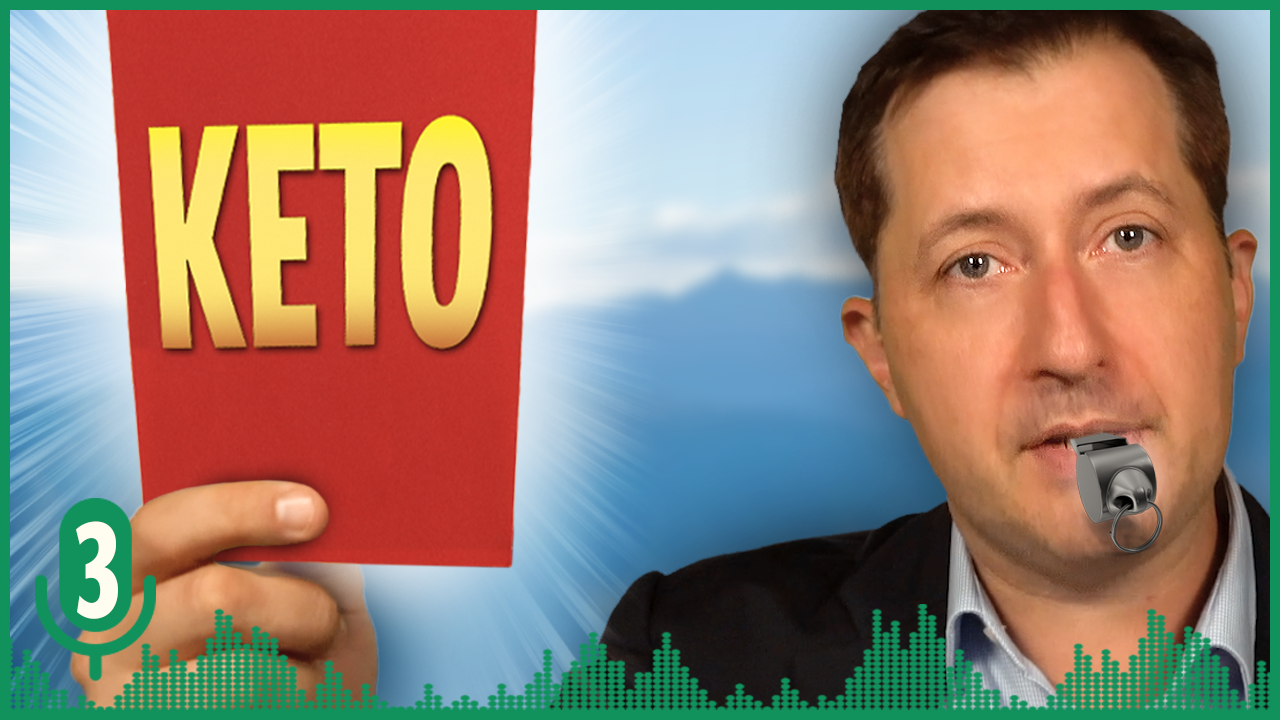Podcast #3 - You NEED to know this about KETO

In the quest for optimal health and well-being, people around the world have adopted various dietary philosophies and practices. Among these, the Keto diet, characterized by its high-fat, low-carbohydrate approach, has gained popularity. At the same time, ancient traditions like Taoism have long emphasized balance and harmony in all aspects of life, including diet. This video aims to provide insights into the Keto diet, Taoist dietary practices, and how they intersect. It will also touch upon the concept of crisis mode in relation to dietary choices, Chinese medicine's emphasis on diverse foods, and practical tips for adopting a Keto lifestyle.
**What is Keto?**
In a standard diet, our bodies convert carbohydrates into glucose, which is used for energy. But with the Keto Diet, we significantly reduce our carbohydrate intake and replace it with fats. This forces our bodies to enter a state called ketosis.
Ketosis is when your body starts breaking down fat into molecules called ketones, which it then uses as an alternative energy source. To achieve and maintain ketosis, you'll need to follow a specific macronutrient ratio. Typically, it looks something like this:
- 70-80% of your daily calories from fats
- 20-25% from protein
- And only about 5-10% from carbohydrates
That means your carbohydrate intake is significantly reduced, mainly coming from non-starchy vegetables and some nuts.
By reducing carbs and increasing fats, you're supposedly training your body to burn fat for fuel, which can lead to several potential benefits, such as weight loss, improved mental clarity, and more stable energy levels throughout the day.
**Chinese Medicine**
According to Chinese medicine, the Keto Diet, like any dietary approach, has both potential benefits and downsides. While it's essential to consult with a qualified practitioner of Chinese medicine for personalized guidance, here are some potential downsides to the Keto Diet from a Chinese medicine perspective:
1. **Imbalance in the Body's Energy:** Chinese medicine focuses on balancing the body's vital energy, known as Qi (pronounced "chee"). The Keto Diet's emphasis on high-fat and low-carb foods can disrupt this balance, potentially leading to stagnation or excess heat, which can result in symptoms like digestive issues, irritability, and skin problems.
2. **Cold Nature of High-Fat Foods:** In Chinese medicine, foods are categorized as warm, neutral, or cold. The Keto Diet's reliance on fats, particularly saturated fats, can be considered cold in nature. Excessive consumption of cold foods may weaken the digestive system, leading to digestive discomfort and potentially cold-related symptoms like fatigue and weakness.
3. **Lack of Variety:** Traditional Chinese diets emphasize a wide variety of foods, colors, and flavors to nourish the body and maintain balance. The Keto Diet's restrictive nature may limit the diversity of nutrients and potentially lead to nutritional deficiencies over time.
4. **Stress on the Liver and Gallbladder:** The Keto Diet places a significant burden on the liver and gallbladder, as these organs are responsible for processing and emulsifying dietary fats. In Chinese medicine, an overworked liver and gallbladder can contribute to issues like irritability, headaches, and digestive problems.
5. **Dehydration and Kidney Health:** Ketosis, a state induced by the Keto Diet, can lead to increased fluid loss and potentially deplete the body's Yin and Kidney essence, according to Chinese medicine principles. This may manifest as dry mouth, increased thirst, and issues related to kidney function.
6. **Impact on Blood Sugar:** While the Keto Diet is known for stabilizing blood sugar levels, it may not be suitable for everyone. Chinese medicine practitioners believe that excessive consumption of sweet foods, which are avoided in the Keto Diet, can help balance the body's energy and nourish the Spleen and Stomach. Some individuals may experience imbalances in blood sugar regulation when transitioning to the Keto Diet.
7. **Individual Variability:** Chinese medicine is highly individualized, and what works well for one person may not be suitable for another. It's crucial to consider a person's unique constitution and health condition when recommending or following the Keto Diet.
In summary, while the Keto Diet may offer benefits such as weight loss and improved insulin sensitivity, it's essential to be mindful of the potential downsides, especially when viewed through the lens of Chinese medicine. Before making significant dietary changes, it's advisable to consult with a qualified Chinese medicine practitioner who can assess your individual constitution and provide personalized guidance.
**Taoist Practices**
Taoism, an ancient Chinese philosophy and spiritual tradition, emphasizes living in harmony with the Tao, or the natural order of the universe. Taoist dietary practices align with this philosophy:
- Whole Foods: Taoists prioritize natural, minimally processed foods like fresh fruits, vegetables, grains, legumes, and nuts.
- Seasonal Eating: Eating foods in season and locally available aligns with the natural rhythms of the universe.
- Moderation: Taoists advocate for moderation in food consumption to maintain balance.
- Mindful Eating: They promote mindful eating to foster a deeper connection with food.
- Herbal Teas: Herbal teas, like green tea, are commonly consumed for their health benefits and calming properties.
- Fasting: Some Taoists practice intermittent fasting for cleansing and spiritual purposes.